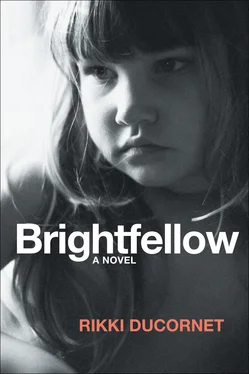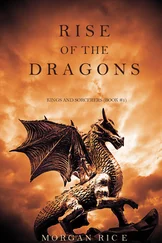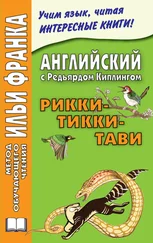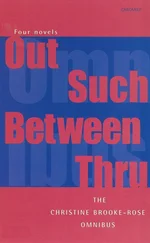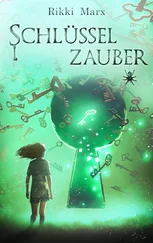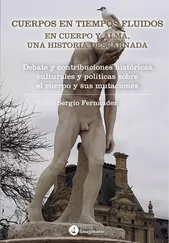“Feeling better!” he pronounces.
“Billy—” Charter says before taking his place at the table, “I feel such. . gratitude.”
“Now, now my dear boy!” Billy scurries to the refrigerator, but just before he turns away, Charter sees that his eyes are full of tears. The thought of losing Billy makes Charter dizzy with fear. He stares at the table and cannot fathom the bottomless secret of his own existence.

After breakfast Charter cuts lilac for the house, and together they fill vases, one for each room. The entire house blooms with lilac. Then they take a walk together, as they sometimes do.
“You seem to enjoy the quiet life, Charter, as much as I do,” Billy says, pulling up a sweet stalk of grass and nibbling the broken end. “Were you a solitary boy?”
“Always. I don’t know another way to live.”
“Concealed?”
“Well, yes, I’ve always needed to. . to. . take cover.”
“You and I and Loon. Loon, too, is solitary. When he retired he vanished. But he never had much to do with this place — apart from the teaching, that is. Always eccentric. Bitter. Brilliant, of course. But bitter. Twisted. Well. We are all twisted, aren’t we? More or less.” He grabs his nose and turns it this way and that like a faucet and laughs. The gesture horrifies Charter. “Ah, the fragile children of men,” says Billy. “Twisted and holy.” After a moment he adds: “The birds do it better than we do.”
“Do it?” Charter wonders.
“This business of raising their young. God! The howling that goes on across the way! Maybe Loon is right. Maybe darkness has more weight—”
“Weight?”
“More. . authority, persuasion.”
“Yes — maybe that is so. How terrible, Billy!”
“We don’t have the courage it takes to live in radiance, when you get down to it. Charter! Why not live in radiance?”
“You do, Billy.” Charter looks at him, so close to losing him, with real affection. “If you were a monk sitting by the side of the road, I believe you’d give your begging bowl away.”

Charter in Hell. He stands in the shadows gazing into Asthma’s window one last time, his mind blazing. One moment he is certain Santa is about to disclose him, call Billy, the Chair, the Fulbright office. The next moment he decides she was teasing him after all. A twisted academic joke. And he wants to set the clock back. He wants to see Asthma as she was, as he knows her to be —mercurial, vertiginous, innocent.
A door opens. Asthma and Pea Pod enter the room. A room vivid in the light of a lingering afternoon. They are alone. Goldie and Blackie lie on the grass gleaming with lotion; the Rods are in Goldie’s kitchen struggling with a broken Waring blender. Asthma and Pea Pod are moving furniture. Perhaps they are making a little stage. Or a classroom. Asthma the teacher and Pea Pod her pupil. Then it becomes strange. A dream unfolds, the darkest dream. Helpless Charter looks on as Asthma pulls down Pea Pod’s panties and smacks her. No, it is impossible! Asthma in the golden afternoon viciously spanking Pea Pod as she stands on a chair, her face in her hands, sobbing.
As then it is over, they are done with the game. It’s as if he has seen angels tearing off one another’s wings, their limbs as breakable as those of birds. What has he seen? He has seen the end of time. When he turns away from the window, it is as if he has been cut loose; he is unhinged, he is severed from what he has come to count on, what he has come to know. He is thrust out from a deep dreaming that had illumed his path. He sees the far reaches of the world as if from space; any sound takes forever to reach his ears. He is solitary now in new and expected ways. As he falls, he begins to aimlessly wander. The days pass and he is listless. At first Billy supposes Charter has caught the flu and cooks up a large pot of chicken broth. But something else has happened. Something dense has taken over Charter’s body, his chest above all, and his head. It is as if heavy bags of sand have been packed into the spaces behind his eyes, between his ribs. Why, he wonders, have the games of children undone me? He sits for long minutes at a time like an old man in a stupor. He dreams of fog, broken glass strewn across his path. The voices of children stolen and kept under a bell of glass.
“What is it, dear boy?” Billy finally asks after another silent breakfast. “You have not been yourself for days. You drag your feet, and this hound-dog expression. . Do you miss home? You are so far from your home.”
“Billy. Your kindness, always. Yes. Home — I have not been home forever it seems. It will pass. A bit of the blues. I’ll take a walk,” he says.
“A good way to refresh the mind,” Billy approves.
As Charter leaves he pockets a small box of matches. He leaves the Circle forever behind him, descends a brilliantly green and perfectly shaved hill and walks to the heart of the campus, making his way to the old painting studio, weather worn and leaning alone among the trees — maples, larches. He carries his dislocation like broken wings on his back, oblivious to the wealth of life in the sky, the trees, the air.
The studio is ripe with oily rags, cans of turpentine, and varnish. Dozens of abandoned canvases scaled with paint are stacked against the walls. As he moves about, particles of dust race around him. He thinks that at any moment in the heat of the day the place could combust spontaneously, something he has read about: a flour mill exploding, a coal mine, a silo full of hay. He knows so much about so many things. He is like a sponge, but instead of soaking up water he soaks up turpentine. He is a cinder in the eye of the world. He gets down to his filthy business without delay, then slips out and away, dissolving into the nearby woods as already the fire cooks up its own weather, its own wind.
Within minutes there is much smoke. The place begins to pant like a box containing living things struggling to get out. As the floor swells, pieces of furniture tumble, collide with the window glass and it happens fast; in no time, the entire structure heaves, bleeds smoke, and the flames have reached the second story. A wall falls away and reveals the Devil’s own kitchen — as when Charter was little and lived in the path of a storm.
In the distance a siren sounds. The fire, he thinks, is big enough to overcome his confusion. But it isn’t. It is only adding to it. And then he sees Asthma. He sees her leap from a shattered upstairs window. Briefly suspended, her body twists and falls through the air. Leaves spreading beneath her, she hits the high branches of a tree; she tumbles, shouting, from branch to branch, collapsing into the upper reaches and continuing on down, her little cotton dress trailing sparks until, as sirens scour the air, she is snagged. He hesitates. A girl of blood and bone and marrow. His beloved girl broken. And then, her Rod trailing far behind, he sees Blackie, running barefoot down the hill, her terry robe flapping at her knees, shouting Asthma’s name over and over. She reaches the tree, the tree that is the only place in the world. The tree that grows at the heart of the world. It is uncanny how Blackie scales it as if she has done this a thousand times. She tears away the dress, she gathers Asthma to her heart, the coveted child, the irreplaceable child madly wanted, saying: Sweet child. My own daughter. My dearest beloved. As the fire truck now battles the fire with its mighty powers, an ambulance howls close. There is nothing for him to do but get the hell away and he does, running from the shadows into the deeper woods, the ravine behind, the river beyond, wild in mind with this thing he has done. Asthma. The child who like an angel or bird haunts the high places, the high reaches, and who had come to care for him, to follow him— the risk of this! Why had it not occurred to him? A terrible fear overtakes him like a surge of filthy water and he knows he is not fit to live among the many of his kind.
Читать дальше
